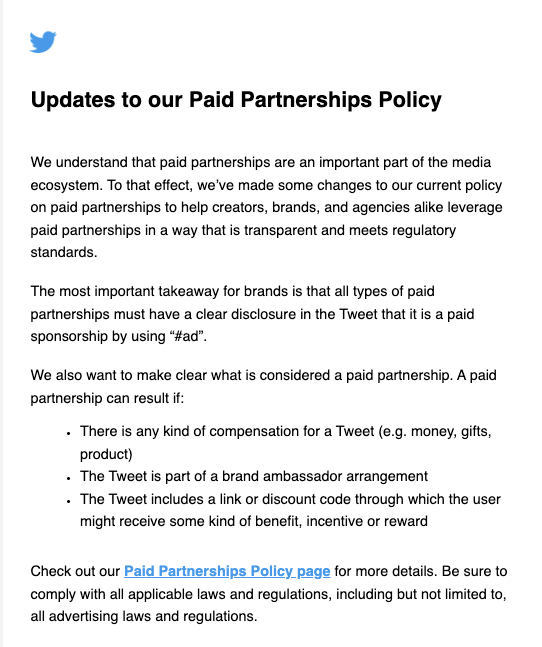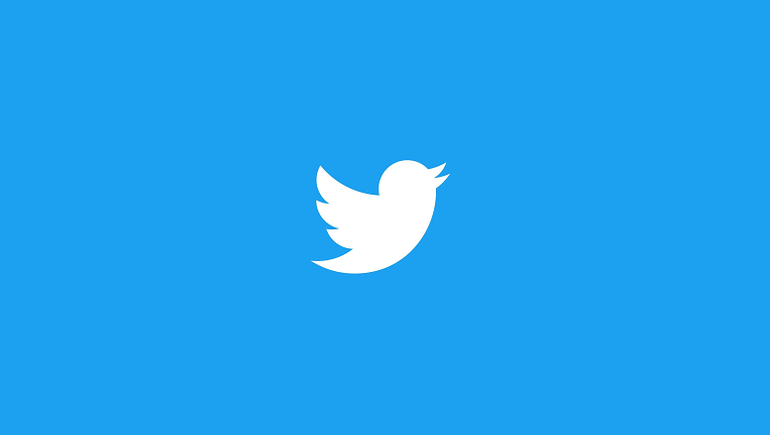Twitter has updated its Paid Partnerships Policy to ensure more transparency in paid promotions within tweets, amid rising scrutiny on influencer deals, and how they’re communicated within social apps.

As you can see in this update note, Twitter’s now reinforcing its stance that all paid partnerships must be disclosed with the #ad tag in the tweet.
In its further notes, Twitter also says that #paidpartnership and #sponsored are acceptable disclosure tags.
“In addition to abiding by the Twitter Rules, users, including creators and brands, that participate in Paid Partnerships are responsible for complying with all applicable laws and regulations, including but not limited to, all advertising laws and, where applicable, FTC regulations including the FTC’s Guides Concerning the Use of Endorsements and Testimonials in Advertising.”
Failure to do so, Twitter says, could result in ‘enforcement actions’.
The updated push comes as various governments look to implement new measures to ensure transparency in influencer marketing partnerships.
The UK’s Digital, Culture, Media and Sport Committee has called for reform of current advertising regulations in order to better police influencer partnerships online, while the General Directorate for Competition, Consumer Affairs and Fraud Prevention in France has also called for greater oversight of the industry, after its research found that up to 60% of influencers are currently not complying with regulations on advertising and consumer rights.
Australia’s ACCC has also launched a review of online platforms to scan for paid disclosure violations, while India has introduced new fines for influencers that fail to disclose financial ties with brands.
Given the broader, global action, Twitter’s renewed push makes sense, as it works to align with regulatory expectations, while still enabling brand deals in the app. Twitter also doesn’t have paid partnership tags like Meta, which means that its disclosures are even more reliant on user action, and adding relevant tags to any such promotions in the app.
For brands, it’s a good reminder to ensure that you’re adhering the rules around such, and what specific tags you should be adding to any sponsored tweets to avoid confusion and penalty. Influencers also need to be aware of such, with the increased transparency helping to ensure audiences are informed of brand deals in the app.
The next question for Twitter, then, is how it will enforce such. With so many staff cut from the company, it has fewer resources than ever to monitor and review these elements.
Maybe that too is part of Twitter’s push, making its requirements on this front absolutely clear, in order to simplify reporting and enforcement, with fewer resources.
In any event, the bottom line is that you need to be aware of the rules within your process.
Thanks to Matt Navarra for sharing the updated advice from Twitter.



